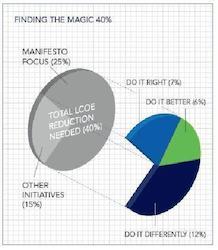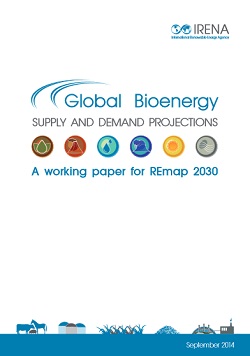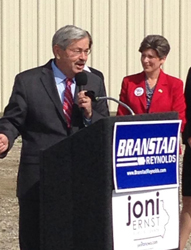DNV GL has released its finding of a report, “Offshore wind: a manifesto for cost reduction,” at WindEnergy Hamburg 2014. The offshore wind industry is looking to reduce costs to ensure growth. In response to this need, DNV GL is offering the industry its manifesto for offshore wind cost reduction identifies and quantifies cost reduction opportunities. It also set out a challenge and the company has committed to take action on the issue.
 The cost reduction strategies outlined in the manifesto are categorized into three basic types: “Doing it right,” by mitigating risk and increasing certainty; “Doing it better,” by improving the efficiency of existing processes; and “Doing it differently,” by innovating for the future. Working with industry partners, the actions DNV GL commits to in the manifesto have the potential to achieve reductions in the cost of energy of up to 25 percent. According to DNV GL, these savings, combined with trends in other areas such as improved supply chain efficiency, has the potential of delivering a total reduction of 40 percent which is recognized by many stakeholders as the level required to secure the future of the industry.
The cost reduction strategies outlined in the manifesto are categorized into three basic types: “Doing it right,” by mitigating risk and increasing certainty; “Doing it better,” by improving the efficiency of existing processes; and “Doing it differently,” by innovating for the future. Working with industry partners, the actions DNV GL commits to in the manifesto have the potential to achieve reductions in the cost of energy of up to 25 percent. According to DNV GL, these savings, combined with trends in other areas such as improved supply chain efficiency, has the potential of delivering a total reduction of 40 percent which is recognized by many stakeholders as the level required to secure the future of the industry.
CEO for DNV GL – Energy, David Walker, said, “This is about securing the future of offshore wind. Achieving cost reduction is about more than just new technology and innovation. It also requires us to get the basics right which means getting people together, assessing the issues in detail and defining best practice. This may be seen as incremental or even unglamorous, but it is exactly what a maturing industry looks like and it is exactly what is required to drive down costs.
“The good news is that we are seeing signs of progress, but we need to do much more as an industry,” added Walker. In this manifesto document, we in DNV GL recognise the role we can play in the cost reduction story – we are committed to helping offshore wind do it right, do it better and do it differently.”
The manifesto document contains 14 specific pledges across a wide range of topics from reducing subsea cable installation risks through to accelerating the commercialization of floating offshore wind technology:











